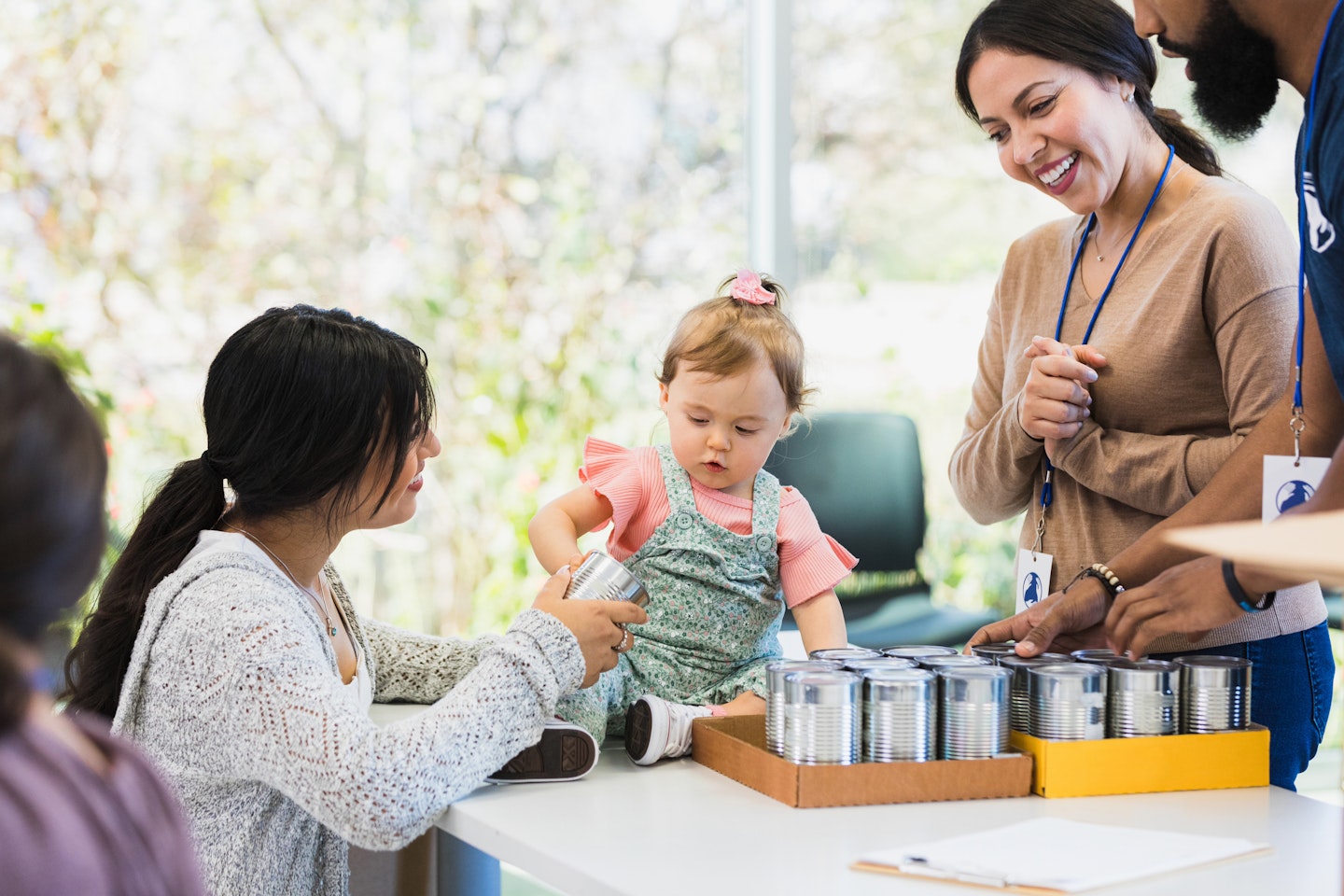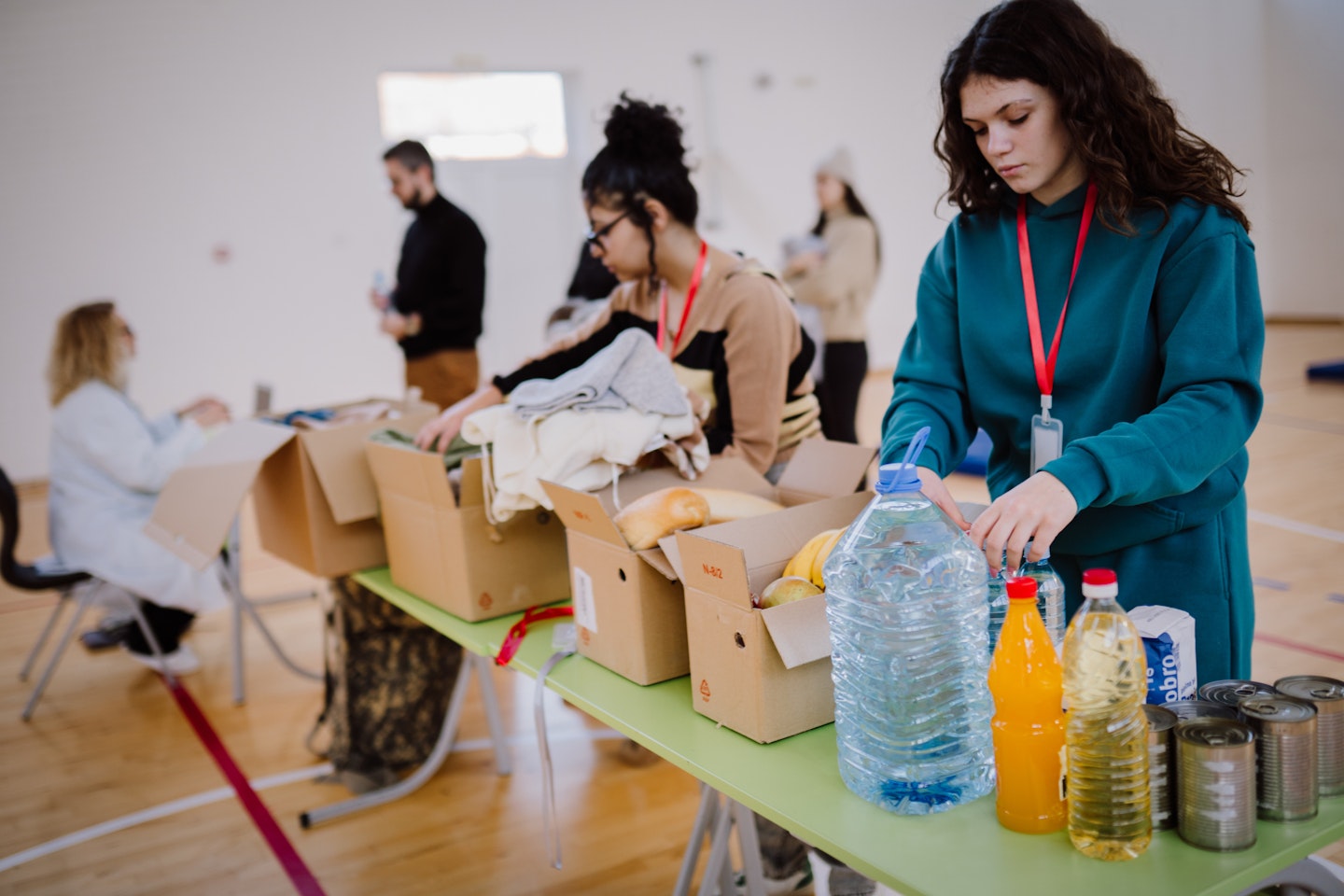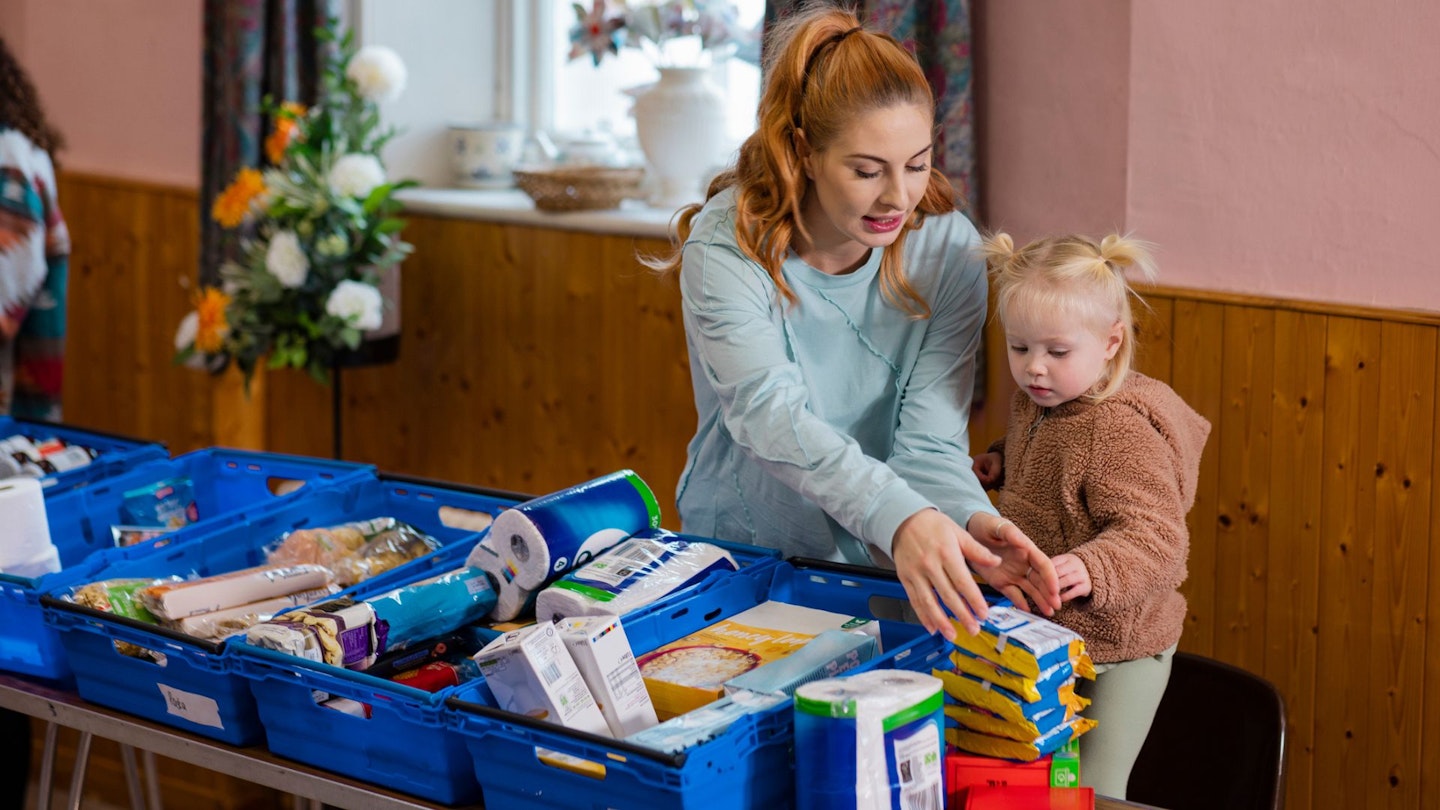More than 14 million people live below the poverty line in the UK and the need for food banks is constantly rising. More and more people are unable to afford essential amenities such as healthy food and a roof over their head. Since the pandemic and the Cost of Living Crisis, the number of people needing to use food banks in the UK has dramatically increased. The Trussell Trust recorded that between 2017 and 2023, there has been an increase of at least 1,631,841 people receiving emergency food parcels.
What is a food bank?
Many people have heard of the term 'food bank', but they may not know what it actually means. Food banks are places that supply people in need with basic provisions such as non-perishable food and household items.
What is a soup kitchen?
A soup kitchen is similar to a food bank in that in provides free food for people in need, except it's usually free hot meals they give out to the homeless and those who cannot afford to feed themselves or their children.
Who can use food banks?
Food banks are for anybody who needs short-term food support, this could be due to insufficient pay, homelessness or unemployment, though you can still be employed and use a food bank.
How to apply for food bank
You will need to get a referral from a professional before you can use a food bank. Once you are referred, you will be supplied with a voucher so you can get a food parcel or other supplies free of charge.
How to get a foodbank voucher
To use a food bank and get a voucher for one, you may need to be referred by a GP, social worker, school, health visitor or an advice agency such as Citizens Advice. This way, you can receive care that focuses on what you're most in need of, so that they can offer practical guidance and support, as well as the right emergency food.
How many families use food banks in the UK?
It is hard to determine the exact number of families using food banks as many independent food aid organisations don't calculate their visitors in the same way. The Trussell Trust alone have 1,300 food bank centres and they supplied 2.99 million three-day emergency food parcels in 2022 to 2023. Out of this number, 1,139,553 went to households with children.

What is the Trussell Trust?
The Trussell Trust is a charity that works with food banks nationwide by giving them support and food. They provide a minimum of three days’ nutritionally-balanced emergency food to people and support to people in crisis. UK poverty is drastically increasing so they also do lots of campaigning to end food poverty and the need for food banks in the UK.
Donating to food banks
Many food banks are struggling due to their ever increasing need, but there are several ways you can support them. Including volunteering and donating items.
How to donate food to a food bank
•Find your nearest food bank and donate directly
•Donate money to make a financial contribution so they can buy what's needed
•Leave some items at drop off collection points in supermarkets
•Add extra items to your online food shop and donate them directly
•Set up a collection for your local food bank
If you'd like to donate, look for non-perishable items. Here's a list of items that the Trussell Trust recommends:
•Tinned vegetables (e.g.: potatoes, carrots, green beans, tomatoes)
•Tinned fruit
•Pasta
•Pasta sauce
•Tinned meat
•Tinned fish
•Tinned soup
•Tinned meals (e.g.: spaghetti, chicken or veg curries, chilli)
•UHT milk
•Long-life juice
•Sponge or rice puddings
•Coffee (small jars)
They also suggest donating non-food items if you can, such as:
•Toilet roll
•Shampoo and conditioner
•Washing up liquid
•Shower gel
•Laundry detergent pods
Clothes shopping can be expensive, particularly for parents as children constantly need new clothes as they grow. You can drop off pre-loved clothing at your local clothes bank or charity shop, and you can also donate baby clothes at baby banks.

Other places to get help with food
Depending on the community you live in, there are several places you can go to get free or discounted food.
Food hubs
Some areas have set up food hubs (such as George's Food Hub in Lincolnshire) that give away perfectly good food given to them by suppliers that would otherwise go to landfill due to supermarkets and best-before dates. These places are run by volunteers who may also cook meals that are either free or cheaper than restaurants. Usually, it does not cost to use these places, but donations are greatly appreciated.
Too Good To Go
Initially launched in Copenhagen in 2015 as a bid to minimise food wastage, Too Good To Go is a service where customers can find surplus unsold food from local restaurants or establishments that sell food. Many huge brands including ALDI, Morrisons and Greggs take part in this scheme, as well as local businesses.
The app will give you a price to pay, which is usually around £5 to £3 (this may vary) and a timeframe to collect your goods in. Usually you aren't able to choose what food you get, as it depends on what the your chosen place has left to give away.
Kids eat free
Certain restaurants and cafes are offering free kids meals, usually if an adult meal is purchased. Many supermarkets and businesses tend to run special promotions like this during half-terms and holidays, so it's worth checking regularly.
Arabella Horspool is a Commercial Content Writer for Mother&Baby and Yours at Bauer Media. She's a bookworm who enjoys cooking and spending time with her many pets.
